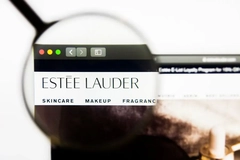Sulapac gives cosmetic pencils an eco-friendly makeover

Sulapac has launched Flow 1.8, a bio-based extrusion material, which seeks to offer a fossil-free alternative for cosmetic pens and pencils that rely heavily on plastic coatings.
A bio-based extrusion material is derived from renewable biological sources, such as plant-based polymers, that can be processed using extrusion techniques. Extrusion is a manufacturing method where the material is heated and forced through a mold or die to create continuous shapes — a particular benefit for use in cosmetic pencil packaging.
Plastic has emerged as a preferred alternative to traditional wooden materials for makeup pens and pencils, providing both sharpenable and mechanical formats that enhance durability and support product formulations.
To align with sustainability goals and evolving industry standards, brands are addressing the environmental challenges posed by styrene-based materials like acrylonitrile butadiene styrene, a thermoplastic polymer commonly used in cosmetic pencils.

These plastic-based materials depend on fossil fuels, have a high carbon footprint, and contain harmful substances, making them difficult to recycle and a major contributor to microplastic pollution. Daily sharpening and disposal of cosmetic pencils is another polluting factor that many users may not consider.
Sulapac Flow 1.8 claims to meet both regulatory industry standards and rising consumer expectations for sustainable beauty solutions.
Brands are increasingly committing to reducing their ecological footprint by transitioning to bio-based, recyclable, and non-toxic alternatives. A 2024 Innova Market Insights survey reported a steep increase in environmentally sustainable claims for personal care featuring a +9% year-over-year growth from October 2021 to September 2023.

Sulapac Flow 1.8 is a bio-based, biodegradable extrusion material manufactured specifically for cosmetic pencils.
A sharp solution
As sustainability becomes a key driver in consumer purchasing decisions, the beauty industry is witnessing a growing demand for eco-friendly products and faces the challenge of providing sustainable cosmetic pencil alternatives that perform as well as their current plastic compositions.
Sulapac Flow 1.8 features a “natural feel” fine wood flour that is a low-carbon, non-toxic alternative to plastic. Unlike pure wood which can absorb moisture and damage product formulations, Sulapac Flow 1.8 contains biopolymers — a renewable, biodegradable composition that won’t compromise the makeup formula.
Recycled content
The industry is shifting toward biodegradable beauty solutions in a bid to protect the planet. Cleanhub’s 2024 consumer behavior data, based on a survey of 500 Americans, revealed that 63% of respondents look for products with natural ingredients that benefit the skin and the environment, while 49% of respondents are paying more attention to beauty product sustainability, including packaging.
Sulapac Flow 1.8, manufactured as a byproduct from wood processing, is reported to leave no harmful residue or permanent microplastic pollution behind after decomposition — reducing environmental impact.
The material also abides by the EU’s Packaging and Packaging Waste Regulation, which initiates strict requirements on the use of recycled content in packaging. Additionally, it has received the SCS Global Services certification for recycled content.
Waste initiatives Sulapac Flow 1.8 provides an eco-friendly solution in the production of cosmetic pencils.
Sulapac Flow 1.8 provides an eco-friendly solution in the production of cosmetic pencils.
The cosmetics industry is responsible for large amounts of waste from single-use packages. According to The British Beauty Council, 95% of cosmetics packaging in Britain is discarded.
Personal Care Insights recently reported on The British Beauty Council’s industry-wide initiative, The Great British Clean Up, launching next month in a move to reduce the amount of waste produced by the beauty sector, and educate consumers on brand recycling activations.
The council’s data emphasizes the demand for the waste management campaign. Currently, 56% of consumers do not recycle their empty beauty products, while its Courage to Change landmark report disclosed that the industry produces over 120 billion units of packaging globally, much of which goes into landfills.
Millie Kendall OBE (Order of the British Empire), CEO of the British Beauty Council told us, “The beauty industry provides so much joy and self-confidence and is a source of expression for so many people but this should not come at the cost of the planet.”













